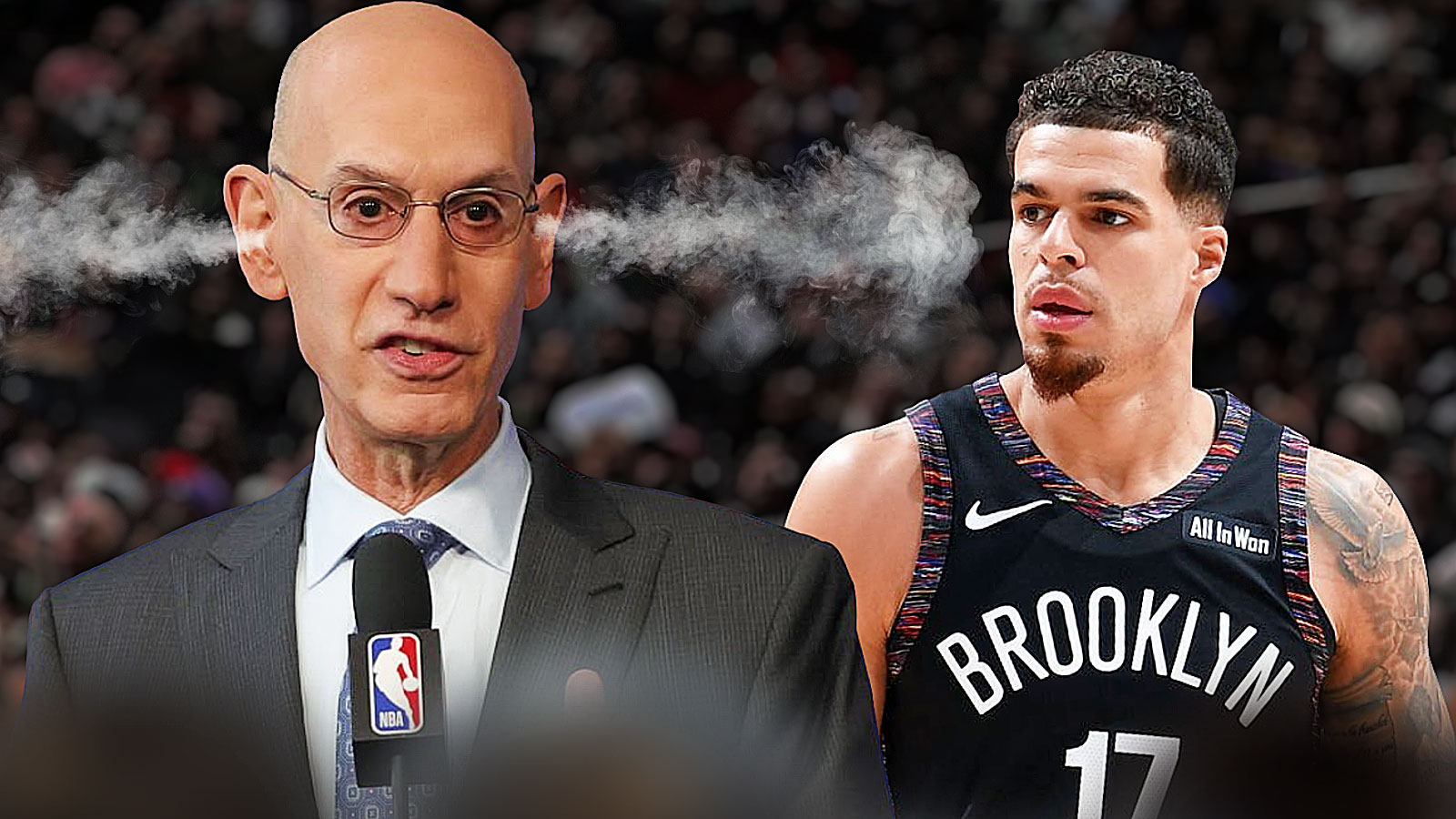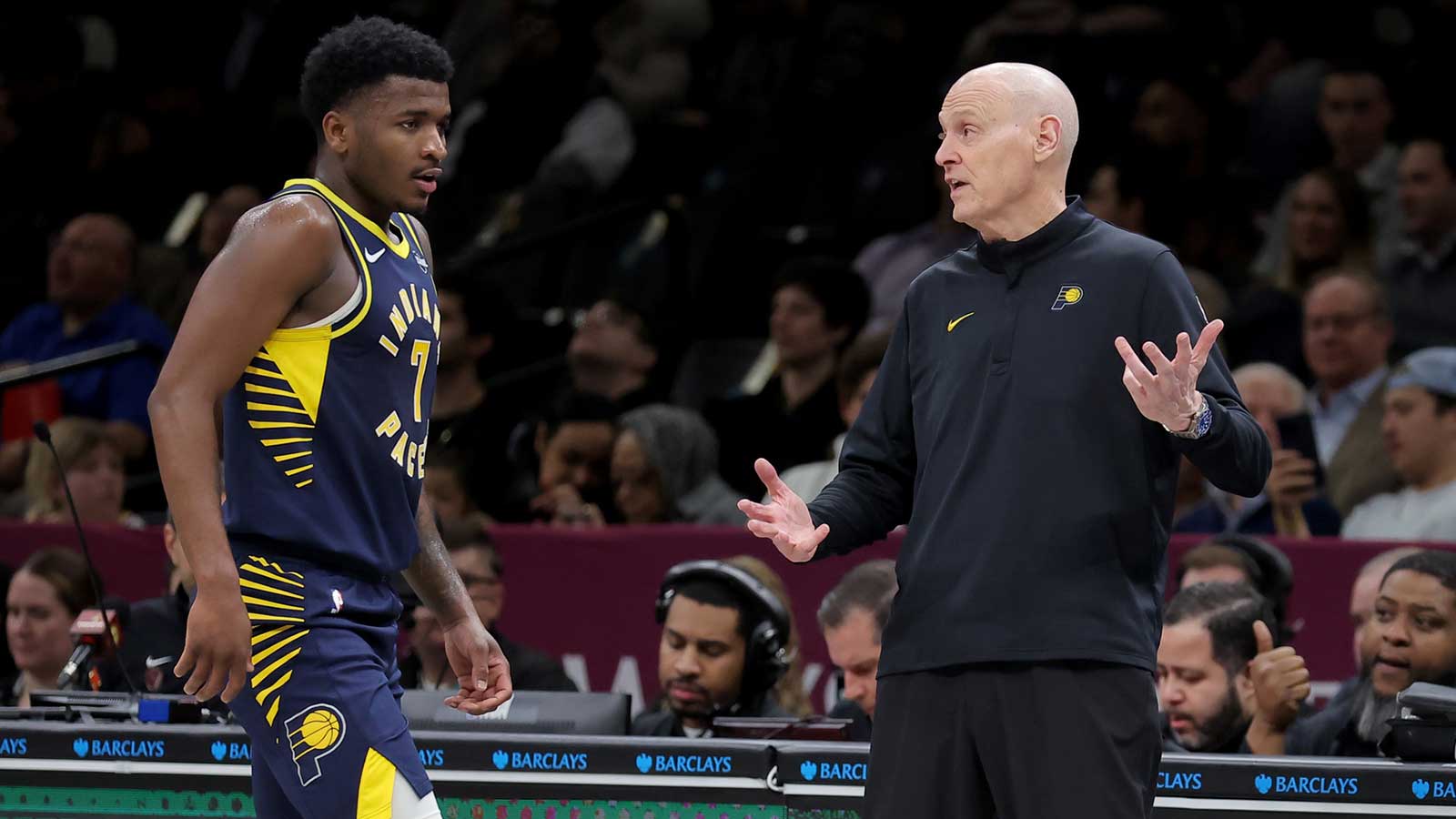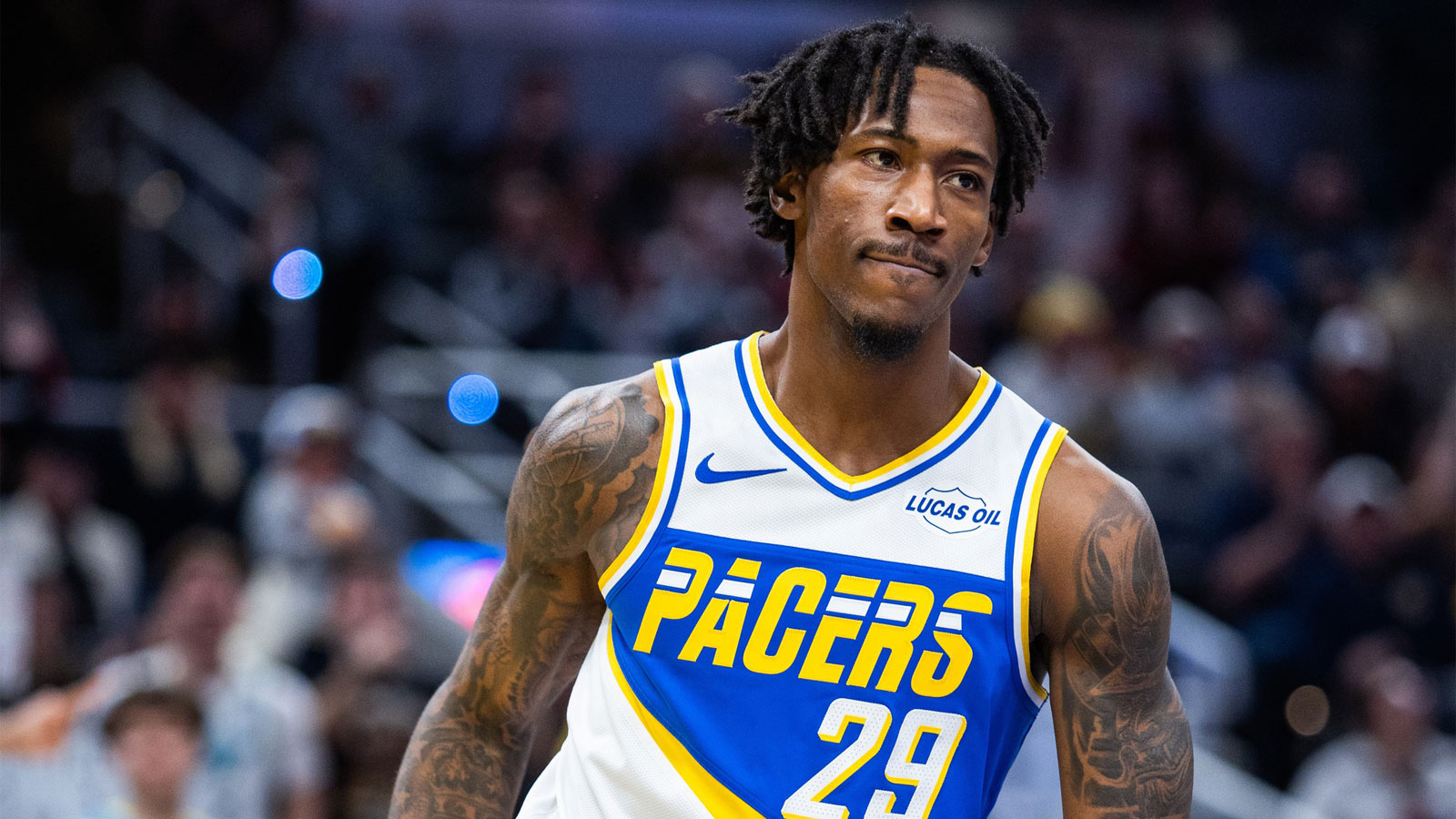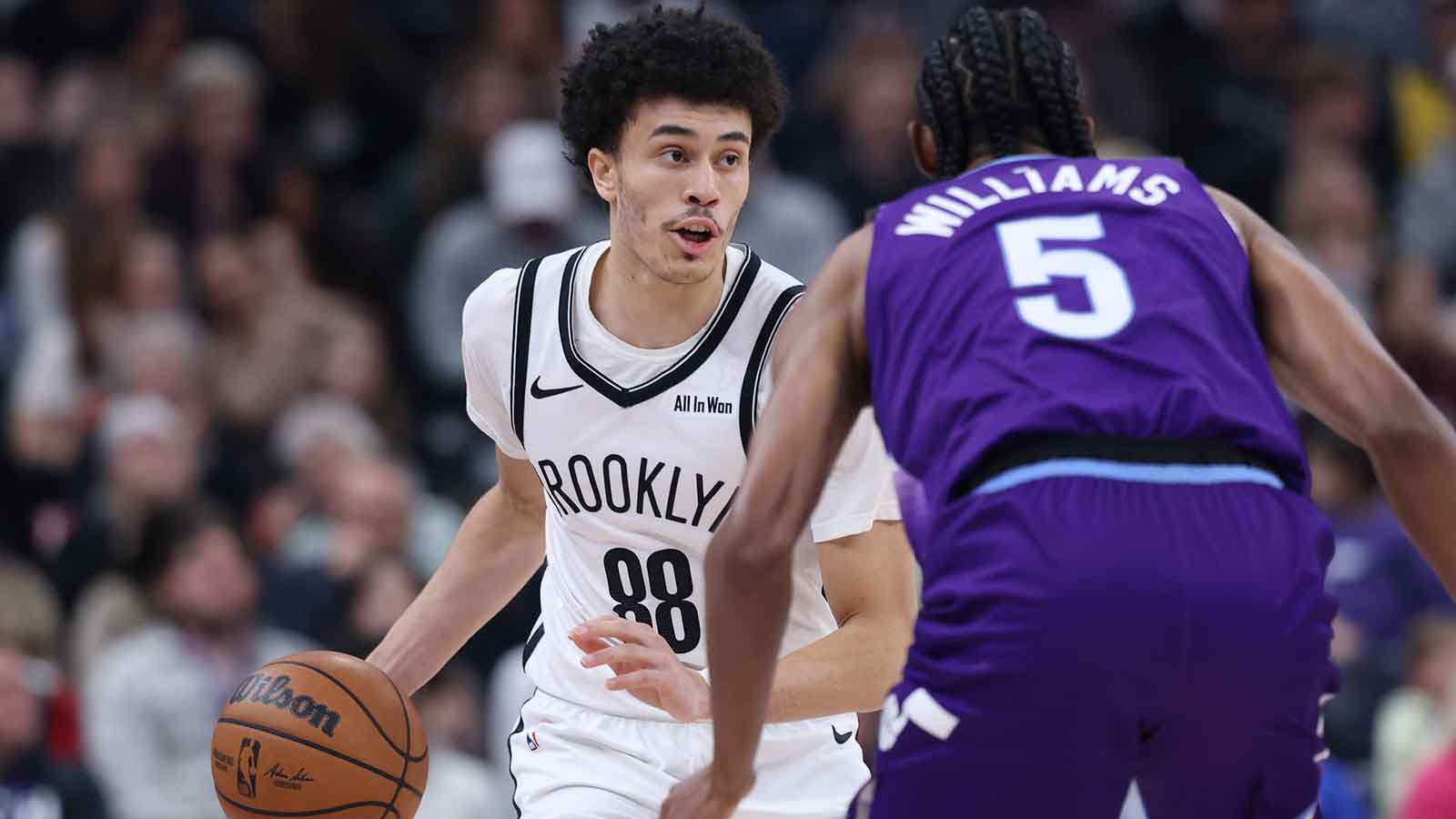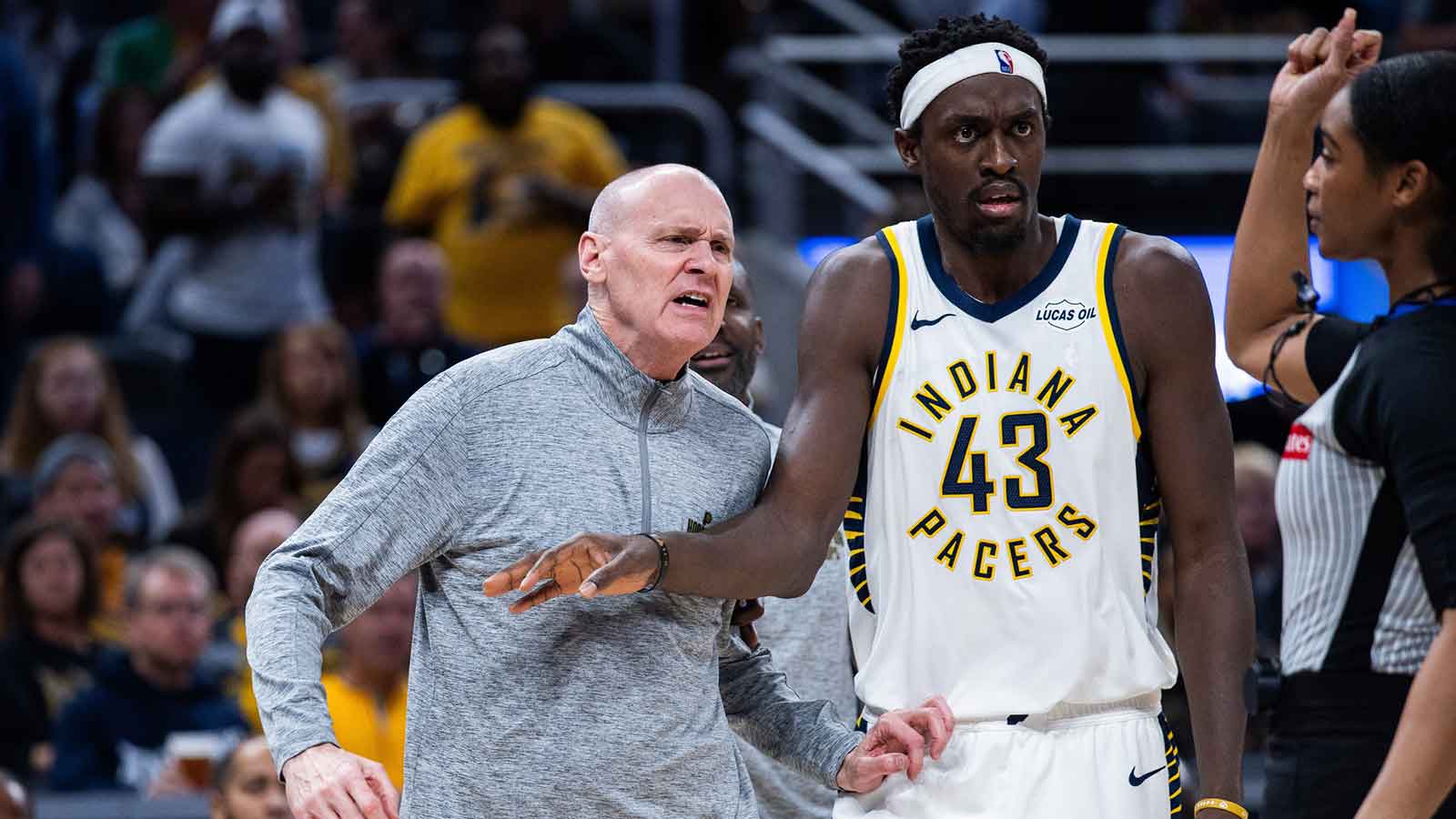Brooklyn Nets guard Spencer Dinwiddie made headlines when he announced he would be investing his contract into a new digital venture, essentially using the contract the team handed him in the offseason as startup funds. On Friday, however, the NBA declared Dinwiddie's contract investment plans unlawful.
Per Marc Stein of The New York Times:
The NBA has informed the Nets' Spencer Dinwiddie that he is not permitted to sell shares in his contract.
No player shall assign or otherwise transfer to any third party his right to receive compensation from the team under his uniform player contract.
As explained by The Athletic, here's how Dinwiddie's investment scheme would have worked out:
Brooklyn Nets guard Spencer Dinwiddie will soon become the first pro athlete to turn his contract into a digital investment vehicle when his company and token name, “$SD8,” go public for investors. The project will be backed by Dinwiddie’s three-year, $34.36 million contract extension and will bring him an upfront lump payment.
In a secured investment vehicle such as this one, the borrower gives up some future income in return for a smaller lump sum payment. But the borrower, in this case Dinwiddie, then has more money to immediately invest than he otherwise would. A token is a digital currency term. The bond exists in the digital currency world. Instead of buying the bond from a broker, it is through a token.
The Nets re-signed the backup point guard to a three-year, $34 million deal in the offseason, bringing back the clutch player to compete alongside new floor general Kyrie Irving and a young core prominently featuring Caris LeVert and Jarrett Allen.
However, despite the Brooklyn guard's insistence, the NBA has ruled Dinwiddie cannot sell “shares” of his deal.
















